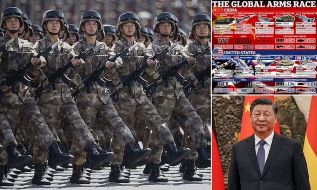DPR Berniat Revisi Perppu tentang Mahkamah Konstitusi
Parliament Likely to Revise the Government Regulations in Lieu of the Law of MK
Reporter : Rizki Saleh
Editor : Cahyani Harzi
Translator : Dhelia Gani
 b.jpg)
Jakarta (B2B) - Dewan Perwakilan Rakyat (DPR) kemungkinan akan merevisi Peraturan Pemerintah Pengganti Undang-undang (Perpu) tentang Mahkamah Konstitusi (MK), yang diterbitkan oleh Presiden Susilo Bambang Yudhoyono.
Presiden menandatangani Perppu Kamis lalu dalam upaya untuk menyelesaikan masalah setelah MK keadilan utamanya bernama sebagai tersangka dalam kasus suap.
"DPR masih menunggu kesempatan untuk mempelajari Perppu sebelum kita memutuskan untuk merevisinya," kata Wakil Ketua Komisi III DPR, Azis Syamsuddin di kompleks parlemen Senayan di Jakarta, Selasa (22/10).
Menurut Azis, bahwa Presiden, di bawah amanat konstitusi, memiliki hak untuk mengeluarkan Perppu dalam situasi darurat.
Dia mencatat bahwa Perppu yang dikeluarkan oleh Presiden, tidak akan berlaku secara otomatis tetapi harus menjalani pengujian hukum oleh DPR dalam 30 hari kerja.
"Jika DPR menerima Perppu tersebut, maka akan ditindaklanjuti dan ditetapkan melalui undang-undang, tapi kalau DPR menolak, maka tidak akan berlaku lagi," kata Azis.
Para politisi dari Partai Golkar menjelaskan bahwa jika dalam 30 hari, DPR masih ragu-ragu tentang apakah akan menerima Perppu, itu akan secara otomatis dianggap diterima oleh DPR dan akan diberlakukan.
Jakarta (B2B) - The House of Representatives (DPR) is likely to revise the Government Regulations in Lieu of the Law (Perppu) on the Constitutional Court (MK), which were recently issued by President Susilo Bambang Yudhoyono.
The president signed the Perppu last Thursday in an attempt to resolve the MK problem after its chief justice was named as a suspect in bribery cases.
"The DPR is still waiting for the opportunity to study the Perppu before we decide to revise it," House Commission III deputy chairman Azis Syamsuddin said at the Legislative building here on Tuesday.
According to Azis, the president, under a constitutional mandate, has the right to issue the Perppu in an emergency situation.
He noted that the Perppu, issued by the president, would not go into effect automatically but should undergo a judicial test by the DPR over 30 workdays.
"If the DPR accepts the Perppu, it will be followed up and written into law, but if the House rejects it, it will no longer be valid," Azis noted.
The politician from the Golkar Party explained that if in 30 days, the DPR remained undecided on whether to accept the Perppu, it would automatically be deemed accepted by the House and would be put into effect.















